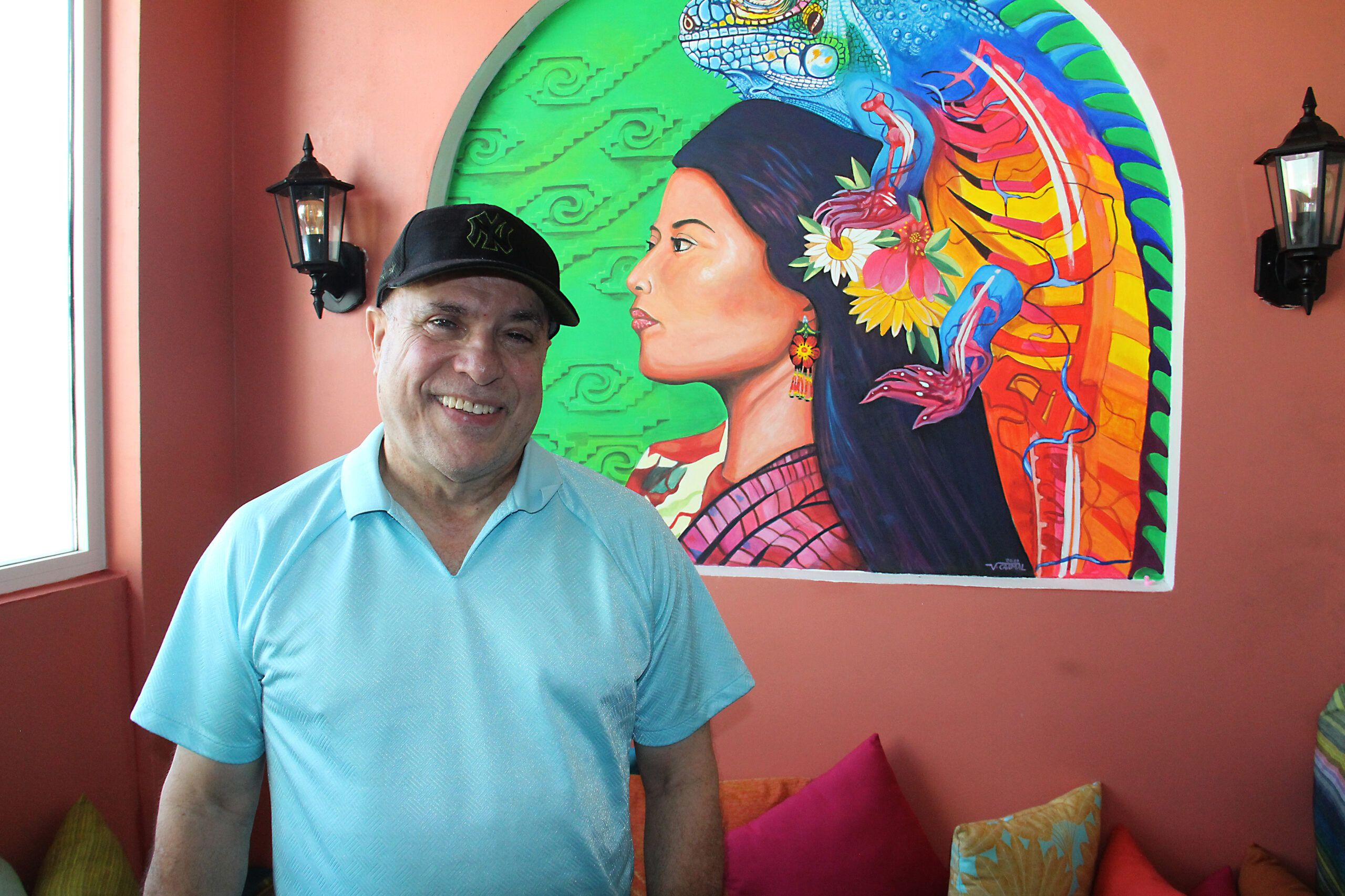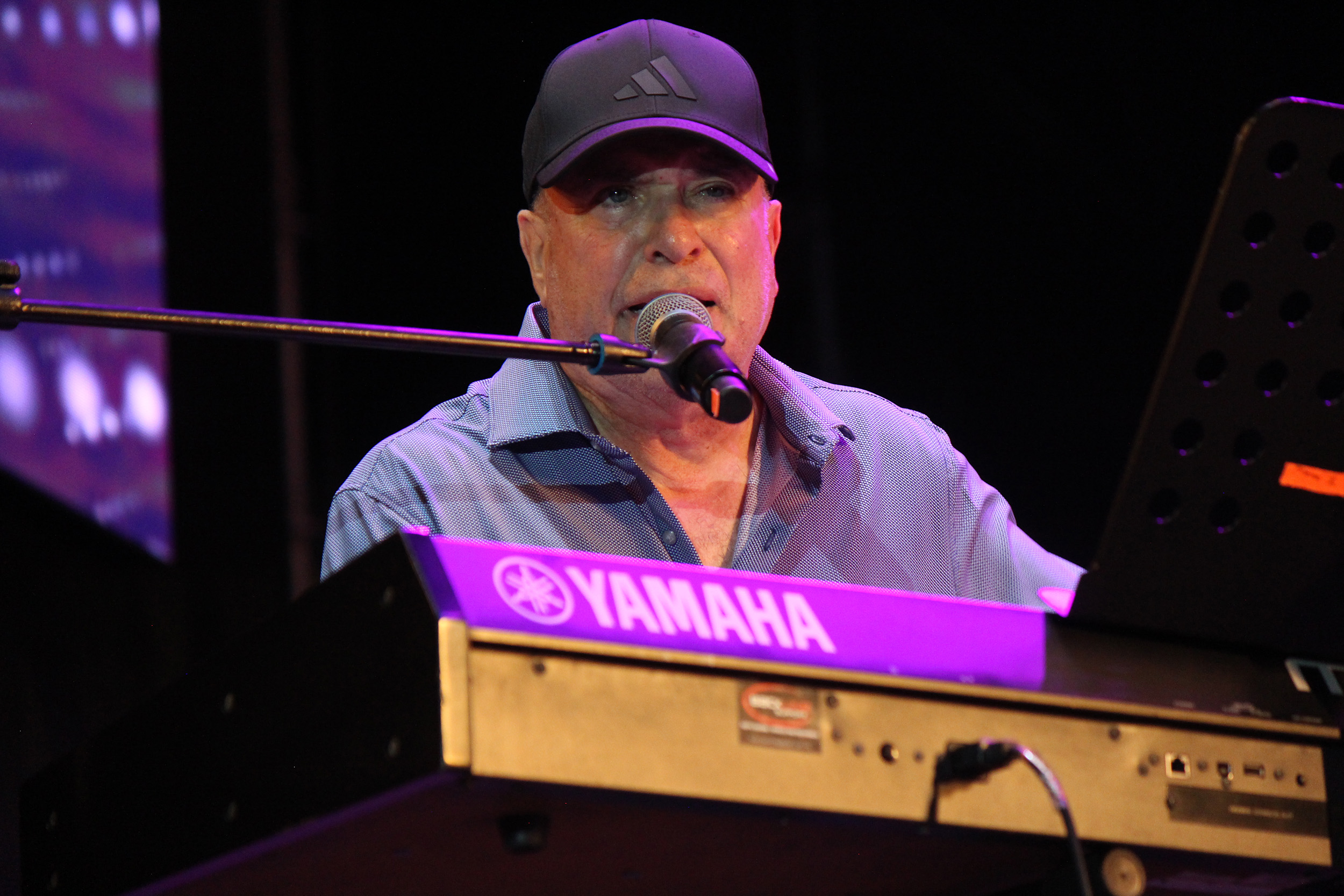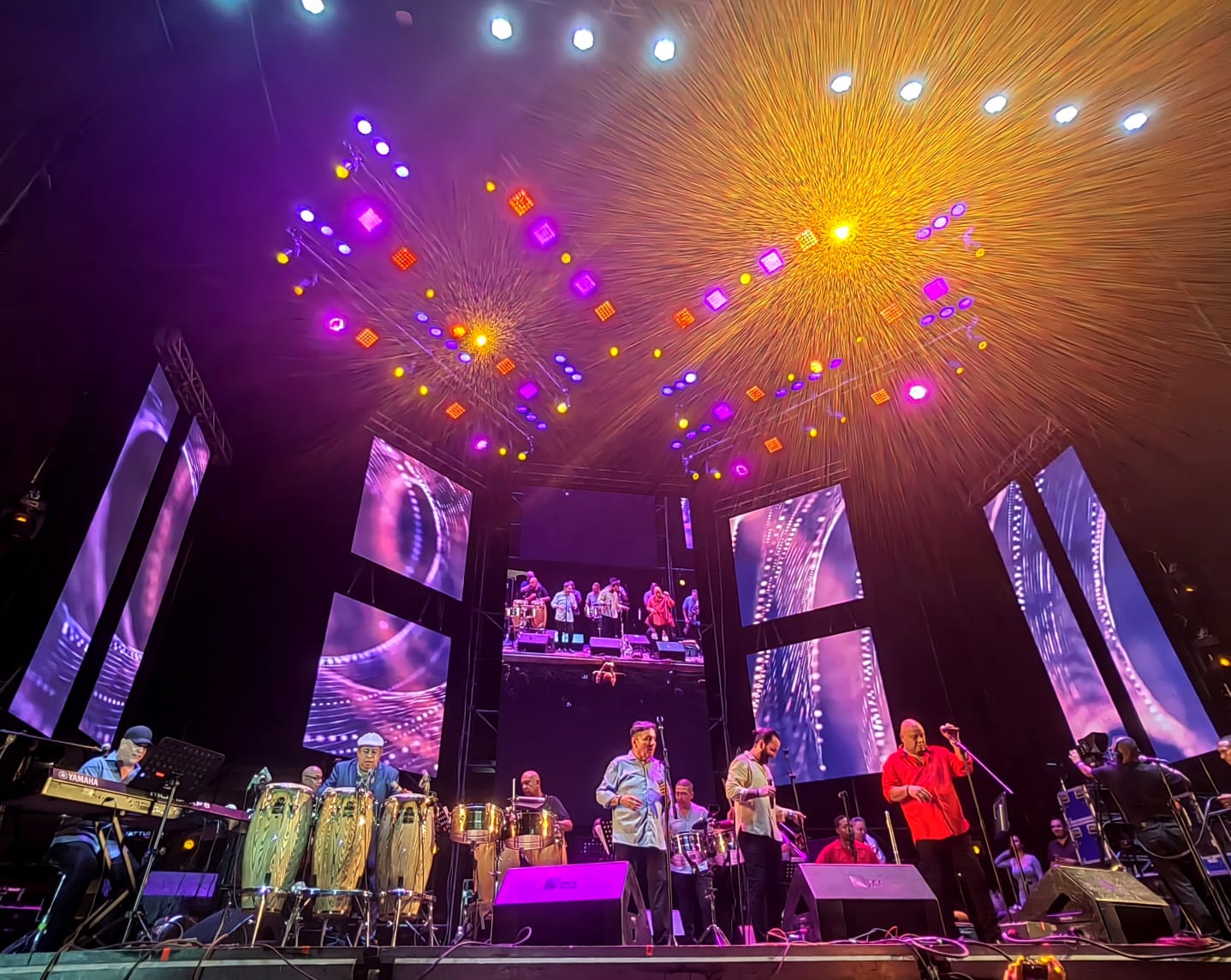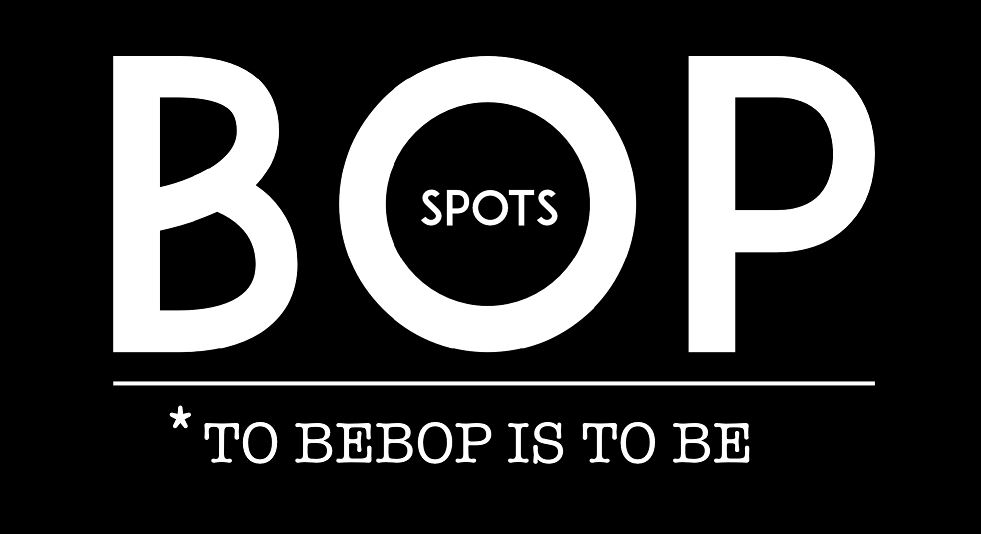
By: Estefanía Romero
Cover Photo: Salvador Bonilla
Oscar Hernandez is one of the most transcendental names in Latin music in the entire world, thanks to his hard work, honest sound and quintessential? music.
He’s the founder, conductor, and pianist of the Spanish Harlem Orchestra, but he is also very active with his own latin jazz project: Oscar Hernández & Alma Libre, presenting his own great compositions and original arrangements.
His first language is English, because he was born and raised in New York; although he gave us this nice interview in his impeccable Spanish, since we were in Mexico and his parents are from Puerto Rico, the reason of his Boricua accent: “Siendo latino, con el 100% que soy” [in English: “I’m 100% latino”], as he added.
E: Master, how did you find your way into music?
O: There is a huge important aspect: the divine order. It’s something spiritual that I don’t get to understand, many things have happened to me, which I cannot explain, even being a musician. I was very poor, in the South of the Bronx, we were 11 siblings, and not a single one was a musician. Someone gave my brother a piano as a gift when he was 14, but it was destined to be mine. The piano was there, I started learning a little by myself, I’m a self-learner, although I went to school, I have my degree. But the experience that I was able to get from when I was 14 to my 20’s and 30’s, by playing with the musicians that were around me in New York, cannot be compared to any university in the world. It was a big part of me becoming a musician.
I started my career playing with one of the most popular orchestras, when I was 18, I’m talking about Ismael Miranda Y Su Orquesta Revelación, in New York, during the 60’s, when salsa was bam! In it’s peak! I’m talking about the Latino cultural boom, mostly originated by Puerto Ricans, who had migrated and found an incredible social environment, although there were also Cubans, some Mexicans, a few Colombians, and then people from other parts of the world started being part of it. There’s nothing at that level anymore, it was a dynamic era, incredibly educational, a high level of creation, of creativity, was occurring. I can see it now. It’s amazing!
I was able to play the piano and make musical arrangements for the orchestra of Ray Barretto. We recorded seven albums. That’s unbelievable. It makes me the musician and the person I am today, Meeting Ray, who had an impressive musical knowledge, not only of Latin music, but also classical and jazz… it’s all part of who I’m today.

E: Your story makes me think of Astor Piazzolla. Its biography mentions that he used to sit outside the jazz bars of New York, when he was a kid, and that meant a lot in developing his musical personality. What else moved you into jazz?
O: The musical environment I lived in New York in my youth. People like Andy González, Jerry González, they were already known as musicians, my eyes would pop out of my face with all of these musicians because they already had a long musical trajectory.
We would spend hours at their house, because I was living nearby, we’d listen to music, not only Latin, but Brazilian, Piazzolla, Jazz, because Jazz was a very big deal for the formation of plenty of people back in those days. We weren’t playing Jazz, but we learned a lot from it. I’m not a Jazz player, but I have a lot of it inside me. I know its evolution, its history, its feeling, the nuances that occur musically, which make that music what it is. I was surely listening to Charlie Parker, Bud Powell, Dizzy Gillespie, Count Basie…
E: Those were the same years when Leonard Bernstein wrote the music for West Side Story…
O: Totally. West Side Story was an absolute cultural impact in the American environment.
E: A declaration, also…
O: Exactly. It included aspects from Latin music. It was also describing what was happening in New York: there were the Latino people, who belong to “el barrio”, the American gangs, the African American gangs, which couldn’t step into each other’s territories, because there was a lot of racism. It sure was part of it.
E: You played with Tito Puente, the master…
O: I’m one of the few living musicians who can say that played with Tito Puente, Machito, Celia Cruz, Ray Barretto, what can I say? That’s deep inside me and it represents what I do with my Orchestra. That and all the people I’ve been able to play with: Oscar de León, Humberto Santa Rosa, Victor Manuelle, Héctor Lavoe… they are part of what I do today. I have a clear compromise in honoring and respecting that legacy, because it’s super important.
When the SHO came up, people said: “there are no orchestras with that sound”, to what I answered: “you forgot what it was like before!”, because it’s the same I used to do with Barretto in the 70’s. Commercial salsa began to drop in the 80’s and the 90’s, it’s what we call “salsa monga”, because it lacks the essence of the music. I understand why it’s popular, they use pop, and they turn Juan Gabriel music into salsa. I get it, but that’s not the music I learned… it lacks the pam! we use in our music, which is genuine, it’s honest, it comes from our roots. I really like that in Mexico City there is a band named “Salsa no comercial”, they get it!
E: Under what criteria do you choose the members, the arrangers…, in your band. It’s all so well fixed…
O: It’s simply the way I do things. It’s the love, the respect I have for the orchestra and the musicians, and they know it. I want musicians who can identify with what we are doing, who clearly understand who we are, because we are history. There is a musician here who was raised during what was happening in the 50’s, 60’s, 70’s… it’s about that. The times of the Fania Records, they were launching 5 records weekly, it was incredible in terms of production, like Motown!
When I was 21, I got a call to play with Celia Cruz, in Toronto. I obviously knew who Celia was, but I had never met her. So… I go to the JFK airport in New York, and I see her… “there is Celia”. I saw her from far away and I thought “oh, she looks oldie”. I mean, I was 21 and she was like 51, ok? Then I introduced myself and she… ahhh! Like sunshine, she’s part of my heart “¡mijito, mucho gusto!” [in English: my little son, my little son, it’s so nice to meet you]. That lady was amazing. We did a rehearsal with the musicians from Canada and the bass player from NY. We went onto stage and they presented her: “Celia Cruz!”. She came out, she was impressive. I was like: “Wow!”. She came and she pam! I worked with her plenty of times after that. It is an endeleble memory for me, that I will treasure forever. The impact she had on me, her way of making things happen, the way she transmitted love. It’s what she knew, she was clear about everything, and she transmitted that every single time.
E: Could you also share an anecdote about Tito Puente?
O: He was an idol of mine. His musical career was so powerful in terms of what we were doing in New York. He was one of the first ones. There was also Pérez Prado and other people, but Tito Puente in NY, in “el barrio”, which is what I’m representing… That’s why it’s the Spanish Harlem Orchestra! His musical excellence is irrefutable. Maybe in his last 30 years he wasn’t so creative, but had already created something big, everything that made me during the 50’s, 60’s and 70’s. I had the joy to tour with him in Venezuela. I didn’t play much because he already had a piano player, but the times we played and recorded together I wasn’t disappointed at all, it was incredible!

E: The enormous symbolic, cultural and musical charge of that name: Spanish Harlem Orchestra…
O: The name of the SHO wasn’t mine. It was the idea of a producer, I didn’t have the power at the time to make such a decision, because it was his project, but it was destined to be mine. Maybe I wouldn’t have named it like that, and I would have been wrong, I admit it. But I realize that it was meant to be for a reason: me being able to represent the Latino culture. I’m very proud and blessed to represent that image of the people who migrated to a country without knowing what they were going to find, to take the risk.
E: When I knew you had been the arranger of the open theme of Sex and the City, I got excited because I really love that music…
O: Those are things that happen without you knowing. Again, what I say about the divine assisting, the heavens shaping life. I was called for a gig. At the time we didn’t know it was going to be successful. They even thought it wasn’t a good idea. We recorded the theme for Cable TV and we were paid something insignificant. We signed a contract, we got like 25 dollars and that was it. Now, I’m not the composer, I’m the arranger! I play the piano and the vibraphone. Everybody listens to that in all over the world, in Africa, Russia… I could have been rich, haha! But it wasn’t the case. The composer was Douglas J. Cuomo, who didn’t know much about Latin music, but he had the idea..
E: But you shaped that theme to what it is!
O: I wonder… if people want Latin music, why don’t they call me directly? What’s going on? Although I do everything. There are also people who are qualified to do so. Some people want Latin music, but they only want “a little”. That was the beauty of Buenavista Social Club: they were very down-to-Earth people, although they created the son, the roots of the Cuban music that we play now.
I’m heading down to my 70’s. I don’t want to be the second in line anymore. And it’s not about ego, there’s no ego involved. I don’t allow the mind to interfere because the mind interferes if you allow it to.
E: What kind of music do you listen to nowadays?
O: I don’t have much time to listen to music as I did before. Sometimes I discover wonderful music. I love jazz, I am always checking on what’s new in it… Brazilian music. In our environment there’s new people, always bringing something new. I like some things, I dislike others. There are amazing things from Cuba, Mexico… I’m in my thing, people call me to make arrangements… I’m creating and creating, when I’m not, I try to relax, watch football, but always keeping my mind open.
E: Your new projects…
O: I have three records as a solo artist, besides the Orchestra. I have my Latin Jazz quintet Oscar Hernández y Alma Libre.
My first record is The Art Of Latin Jazz, the second is Love The Moment, and the third is Visión, they were all recorded in Los Angeles. I just recorded a new álbum: No Words Needed, in NY, with my compositions.
For me, it’s a pleasure to keep moving on with new projects. You’re talking about jazz… well, I live for Latin Jazz!
After this, I’m traveling to Mexico City, then New York… I’ll be recording for two days with the orchestra. Total gratitude for me being able to have these opportunities…
Without asking for it, the master Oscar Hernandez commented on his joy for Bop Spots and our beloved readers:
O: It’s a very important and valid audience, which deserves to know more. My hopes for people are that they keep searching for the best in life: the good music, the good arts, the good food, the good people, the cultures from all over the world…
At the end of our interview, he shared an important reflection:
O: As Latin people, we must acknowledge the value of who we are as people, as a society, and as a culture, to make a better world.

